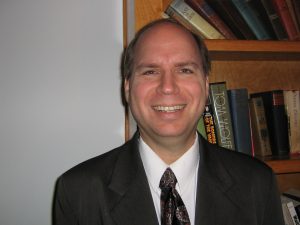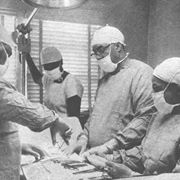
TUSCALOOSA, Ala. — In 2009, Dr. David Beito, a University of Alabama history professor, and his wife, Dr. Linda Royster Beito, released a book called “Black Maverick,” a biography about unsung civil rights pioneer Dr. Theodore Roosevelt Mason Howard.
The book received positive reviews, but, for the Beitos, a book wasn’t enough. Howard’s story needed to reach a wider audience.
In 2015, they attempted something they hadn’t done before: writing a screenplay about a part of Howard’s life they hoped would become a movie.
The screenplay, “Keepin’ It Mighty Hot,” was selected as the winning entry in the Alabama Writers’ Conclave 2017 Screenwriting Competition. The honor comes with a small cash prize and an opportunity for the script to be made into a film by independent producers at Council Tree Productions.
“We were greatly impressed with the huge amount of original research that went into covering the life of such a historical figure; uncovering and making visible such heretofore untold stories is exactly what we believe our mission as a screenwriting competition can and should be,” said Heidi Carroll, an AWC coordinator.
The script was selected from 47 entries. Writers were asked to submit entries that reflect “the myriad of experiences, lives and points of view that all make up life in the Deep South.”
“This is a very prestigious and old writer’s organization,” said David Beito. “… So it’s very encouraging to us to win this.
“The goal now is to get this to be a movie or a miniseries.”
Howard was born to impoverished parents in Murray, Kentucky, March 2, 1908. As a child, a white doctor, Dr. Mason, who thought he was talented, hired him. He added the doctor’s name to his own. He attended Union College in Nebraska where he was the only black student. He later attended Loma Linda University near Los Angeles.
In 1941, he moved to the all-black town Mound Bayou in Mississippi. He became the chief surgeon of the town’s hospital, Taborian Hospital, and started many businesses. He employed Medgar Evers to sell insurance, giving him his first job.

In 1955, he got involved in the Emmett Till case. When he heard about what happened he said, “there would be hell to pay in Mississippi.”
Till’s mother, who traveled from Chicago to testify, stayed with Howard who provided her with armed escorts. Black journalists stayed with him during the trial as well.
“He was very much at the center of the case,” Beito said. “Howard was heavily involved in tracking down evidence, witnesses and other aspects in trying to find justice.”
After the case ended, the NAACP sponsored Howard to speak about the case nationally.
“That was a key moment in the origins of the Civil Rights Movement,” he said. “One speech Howard gave in Montgomery happened three days before Rosa Parks refused to give up her seat on a bus. She said she was thinking about Emmett Till when she did it.”
The screenplay focuses on a five-month period of Howard’s life that centers on the Till case.
Contact
Jamon Smith, communications, jamon.smith@ua.edu, 205-348-4956
Source
Dr. David Beito, dbeito@ua.edu, 205-454-6759
